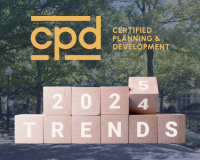
Understanding the Planning Verification Process in South Australia
Why verification matters in South Australia’s development application process, and how to get it right the first time.
In our work, we often hear questions like: “What is verification?” or “Why hasn’t my application progressed yet?” If you’ve ever submitted a development application through the PlanSA Portal and wondered why there’s a delay before assessment begins, the answer is likely found in the verification process.
This article outlines what verification means under South Australia’s planning system and how getting it right can help avoid unnecessary delays.
What is Verification?
Verification is the initial check carried out by Council, once a development application is submitted. This step ensures that the application is complete and meets the minimum documentation requirements before formal assessment under the Planning and Design Code begins.
During verification, the Relevant Authority must:
- Determine the nature of the development
- Identify all proposed elements of the development to ensure the full scope is captured
- Confirm it is the correct authority to assess the application (e.g. Council or Private Certifier)
- Verify the assessment category (e.g. deemed-to-satisfy or performance assessed)
- Calculate and issue the relevant fees for the development application
- Check that all expected documentation is submitted, including plans and reports, with reference to Schedule 8 of the Regulations
It’s important to note that verification is not an assessment of planning merit, it’s purely an administrative check to make sure all required materials have been submitted.
Under the Planning, Development and Infrastructure (General) Regulations 2017, the Relevant Authority has 5 business days to determine whether an application can be verified or if further information is needed.
What is Required for Verification?
To pass verification, applications must include the mandatory documents listed in Schedule 8 of the Regulations. Depending on the type of development, this typically includes:
- Relevant architectural plans (site plan, floor plans, elevations)
- Certificate of title
- Lodgement and other required fees paid in full
- Any required additional reports (e.g. site contamination)
- Declarations required under applicable overlays (e.g. native vegetation)
Each type of development has specific requirements, so referring to Schedule 8 is essential for lodging a compliant application.
Common Issues During Verification
We frequently see delays caused by simple oversights, such as:
- Missing or incomplete plans
- Incorrect or outdated certificates of title
- Inconsistent information between forms and plans
- Unpaid fees
When this occurs, the application is placed on hold, and a Request for Documentation (RFD) is issued. Every time a request is issued, and response received, the verification assessment clock is reset to 5 business days. Unfortunately, Council often scour Schedule 8 during the verification process to manage workflow and can on occasion issue RFD letters for minor trivial issues which have no true bearing on the assessment.
Why Using a Planning Consultant Helps
Engaging a qualified planning consultant can streamline the entire application process especially during verification. Consultants are familiar with:
- The documentation required under Schedule 8
- Zoning and overlay implications under the Planning and Design Code
- Specific council expectations and local planning policies
- How to identify and avoid common red flags early in the process
By preparing a complete and compliant application from the start, consultants help ensure your application is verified quickly, reducing the risk of costly delays.
Final Thoughts
Verification may seem like a small step in the overall planning journey, but it plays a critical role in keeping applications moving forward. Understanding what’s required, and submitting a complete, well-prepared application, is the best way to avoid bottlenecks. If you want to learn more about this process, please head to Plan SA.
To follow along and find out more about planning issues, hear client stories or learn more about the development process make sure to read our online stories and follow any of our social media channels to stay updated. We are waiting for your call for assistance on any project requiring a planning and development consultant.





